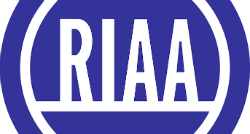During October, the RIAA ignited a fierce debate and significant outrage when it filed a complaint that took down the open source software youtube-dl from Github.
The music industry group stated that the “clear purpose” of youtube-dl was to “circumvent the technological protection measures” used by YouTube to “reproduce and distribute music videos and sound recordings owned by our member companies without authorization for such use.”
Pre-Emptive Strike By YouTube-Ripper Yout
Just days later with public opinion swinging strongly in youtube-dl’s favor, YouTube-ripping platform Yout seized the opportunity to sue the RIAA. Yout had previously been targeted with similar allegations, including that Yout is an illegal tool that violates Section 1201 of the DMCA by circumventing YouTube’s “technical protection measures.”
Dismissing the RIAA’s claims as baseless, Yout’s complaint outlined various actions taken by the label group that ended up damaging its business. For example, Google took the RIAA’s copyright complaints at face value and delisted Yout from its search results. On top, the public takedown notices also devalued Yout’s business by tarnishing its reputation, the company explained.
Amended Complaint Highlights Additional Damage
In an amended complaint filed in a Connecticut court this week, Yout repeated many of the allegations contained in its original complaint. However, a new piece of information suggests that the RIAA also used its powers to attack Yout’s ability to make and receive money.
Yout says that in response to searches for its platform, Yout’s customers were informed by Google that due to copyright complaints received against Yout.com, results had been removed at the behest of the RIAA. This, the platform claims, ended up in Yout customers canceling their subscriptions.
Furthermore, Yout claims that the RIAA also used its powers to limit its ability to receive process payments.
“On information and belief, Defendants’ DMCA notices have caused PayPal to shut down Yout’s account, causing Yout further significant monetary and reputational damage,” the filing reads.
“The Defendants acted with intent and actual malice when they engaged in the foregoing conduct because they intended to harm the Plaintiffs.”
Enhanced Rejections of Anti-Circumvention Allegations
In Yout’s original complaint the platform described itself as a time-shifting service that, in the absence of any specific circumvention of technological copyright protection, cannot be in violation of the anti-circumvention measures of the DMCA.
Indeed, Yout flatly denied circumventing any of YouTube’s protection measures, including its so-called “rolling cipher”, the mechanism at the very heart of the RIAA’s complaint against youtube-dl. What is interesting in Yout’s amended complaint is that it now makes enhanced claims and denials, which show clear signs of benefiting from the EFF’s and Github’s legal stance in the youtube-dl matter.
“[T]he rolling cipher mechanism employed by YouTube does not prevent copying of videos or other digital media,” Yout’s amended complaint reads.
“Yout’s software platform works the same way as a browser when it encounters
the signature mechanism: it reads and interprets the JavaScript program sent by YouTube, derives a signature value [referred to by RIAA as a ‘rolling cipher’], and sends that value back to YouTube to initiate the video stream
“Yout’s software platform contains no password, key, or other secret knowledge that is required to access YouTube videos. It simply uses the same mechanism that YouTube presents to each and every user who views a video,” the company adds.
In a nutshell, Yout says that it cannot circumvent the rolling cipher (as defined in the DMCA) because YouTube itself provides the means to access video streams to anyone who asks for them.
“[O]ne cannot ‘circumvent’ an access control by using publicly available means,” the platform concludes.
Targeting YouTube-DL Proves Counterproductive
Whether the RIAA anticipated the backlash in response to its targeting of youtube-dl or not, it now faces a significantly more difficult struggle to suppress similar tools and services. With the EFF and Github now heavily involved, it’s no longer a simple case of sending takedown notices and watching tools disappear.
And, as Yout’s lawsuit shows, there could be additional legal repercussions too, including a potential effect on long-running cases that the RIAA is already embroiled in.
Yout’s amended complaint can be found here (pdf)
Source: TorrentFreak
